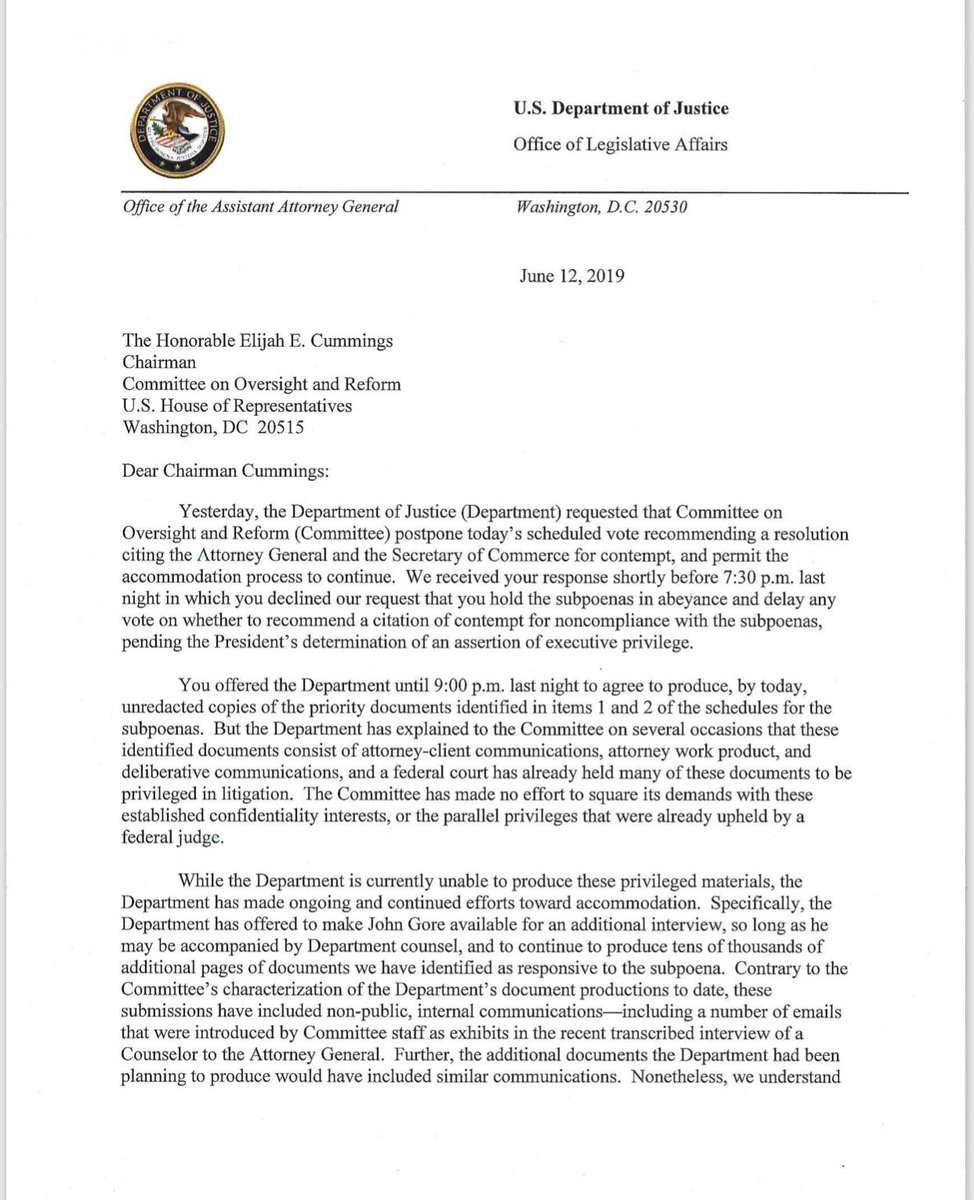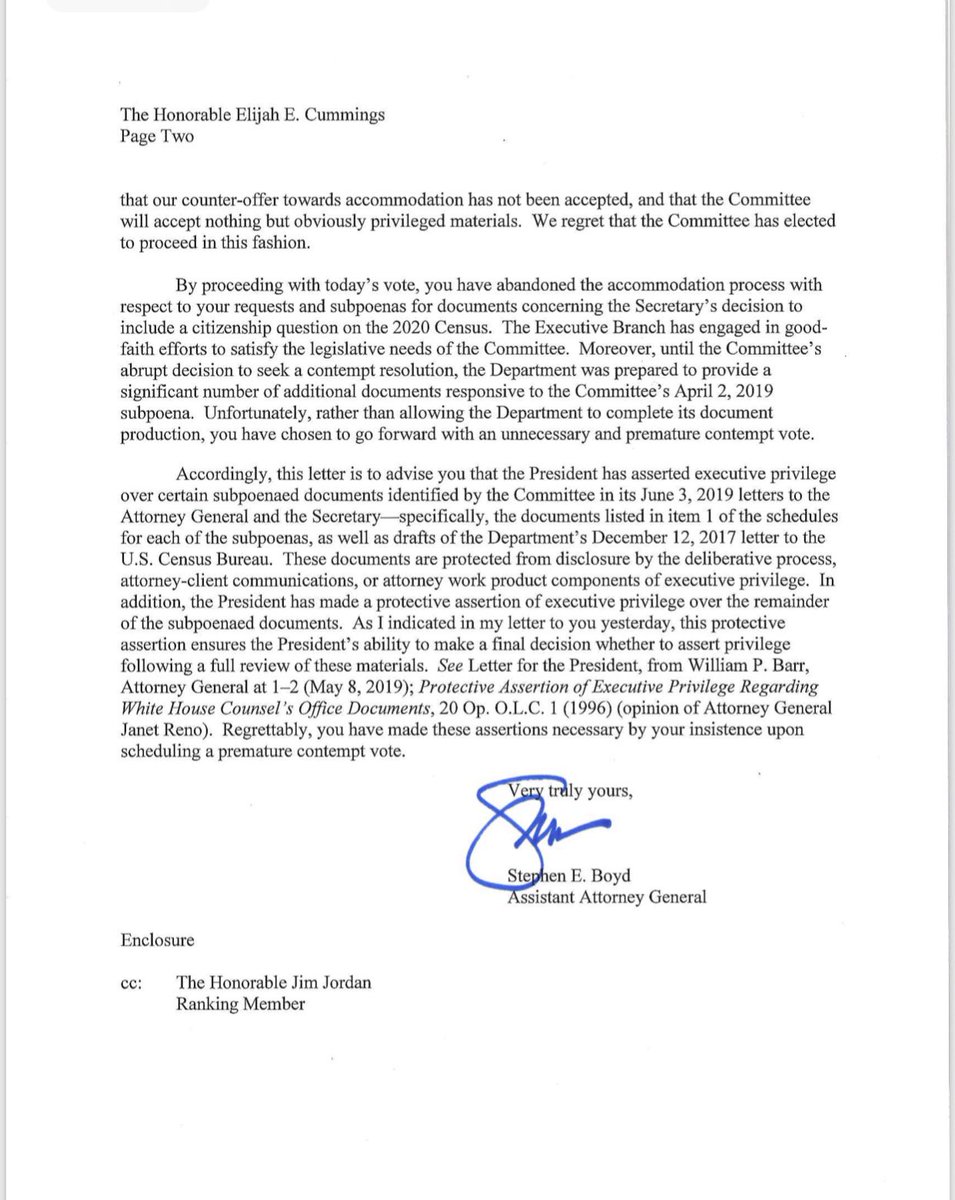https://legal-dictionary.thefreedictionary.com/executive+privilege
...
The use of executive privilege decreased during the 1960s, but it became the crux of the constitutional crisis created by Watergate, a series of scandals involving President richard m. nixon and his associates. When Congress sought to obtain White House tapes containing Oval Office conversations, Nixon refused to turn them over, claiming that the tapes were subject to absolute executive privilege and asserting that the judiciary had no authority to order their production or inspection. Eventually the dispute reached the Supreme Court, where, in united states v. nixon, 418 U.S. 683, 94 S. Ct. 3090, 41L. Ed. 2d 1039 (1974), the Court ruled against Nixon. While acknowledging the importance of the president's claims, the Court stated that "neither the doctrine of separation of powers, nor the need for confidentiality of high level communications, without more, can sustain an absolute, unqualified presidential privilege of immunity from judicial process under all circumstances." In its opinion, therefore, the Court explicitly recognized the president's authority to assert executive privilege but ruled that the use of executive privilege is limited, not absolute. Furthermore, the Court maintained that the judiciary, not the president, has the power to determine the applicability of executive privilege. While the Court affirmed the use of executive privilege, therefore, it determined that in this case, the right of the U.S. people to full disclosure outweighed the president's right to secrecy. This momentous decision soon led to Nixon's resignation from the office of president.
...

